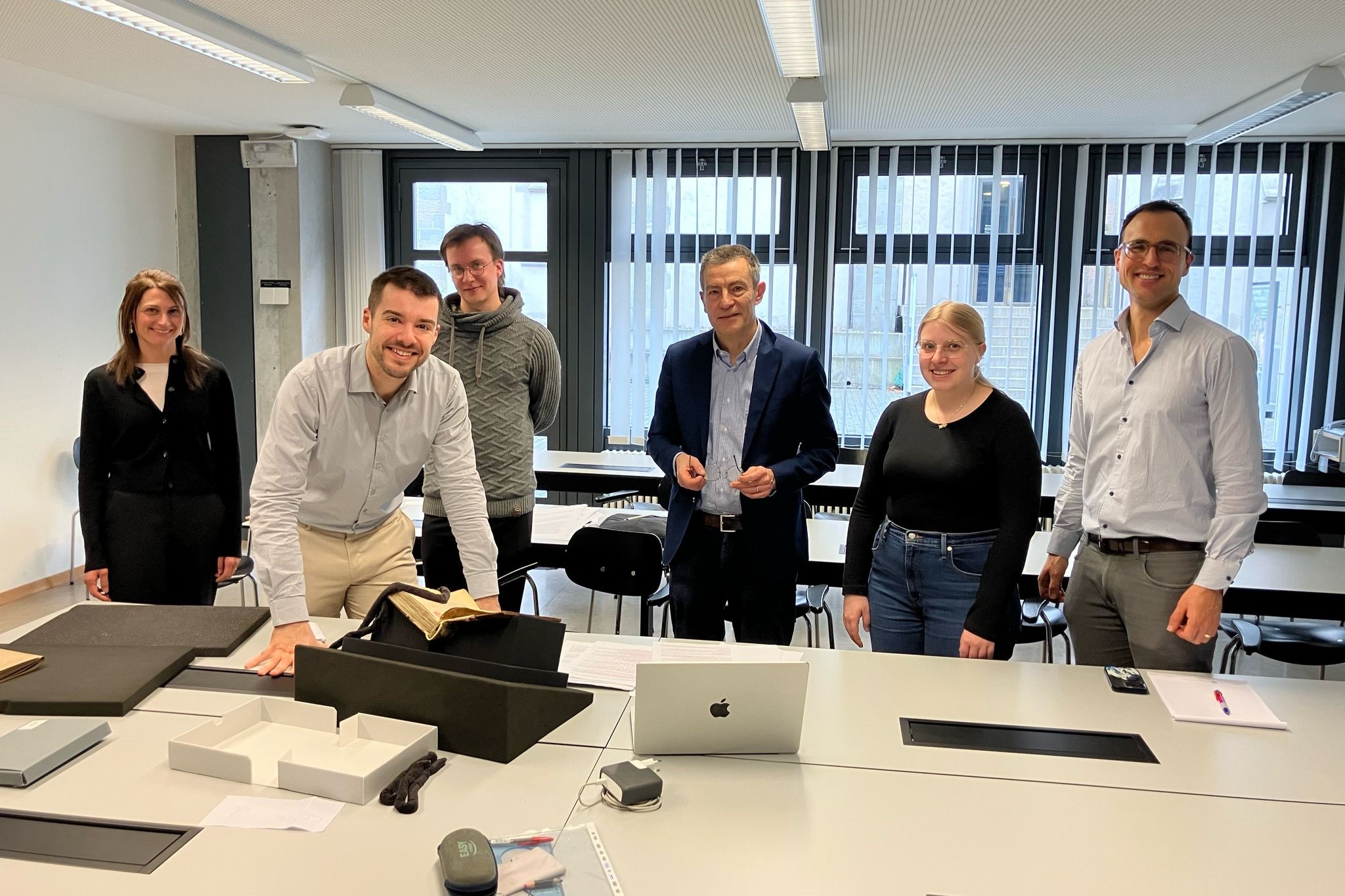Workshop with Marco Cursi
On Tuesday, February 18th, and Wednesday, February 19th, our research group had the privilege of hosting Professor Marco Cursi (Full Professor of Latin Palaeography at the University of Naples “Federico II” and Lecturer in the History of the Book and Writing at the University of Lugano) for a two-day training event dedicated to the study of medieval manuscripts.
On the first of these days, Professor Cursi delivered a public lecture titled “Umili ma preziose: carte autografe di letterati e artisti italiani (secc. XIII-XVI)” in which he discussed and presented the writing practices and dynamics that, between the Late Middle Ages and the Renaissance, shaped the manuscript production of some of the most prominent literary and artistic figures of the time: Saint Francis of Assisi, Francesco Petrarca, Thomas Aquinas, Leonardo da Vinci, and Michelangelo. Particular emphasis was placed on the textual containers – such as notebooks, journals, drafts, and loose sheets – that, despite their modest appearance, hold great historical significance, having preserved the written testimonies of these figures up to the present day.
The following day was spent at the Central Library of Zurich (Zentralbibliothek), where – thanks to the generous hospitality of Rainer Walter, Head of the Manuscript Division – we had the opportunity to organize a workshop in direct contact with some of the library’s most important codices. Guided by the expertise of Professor Cursi and Rainer Walter, we were able not only to retrace key moments in the history of the manuscript book and reflect on the dynamics that influenced the evolution of medieval scripts, but also to explore in depth the intricate processes involved in manuscript production, from the selection of materials to writing techniques and decoration. We also handled original specimens, among which two deserve special mention: the famous Zurich Bible (ms. Car C 1) and a copy of Priscian’s Institutiones Grammaticae (ms. C 88), whose front flyleaf preserves the oldest known witness to the origins of Italian vernacular lyric poetry.




